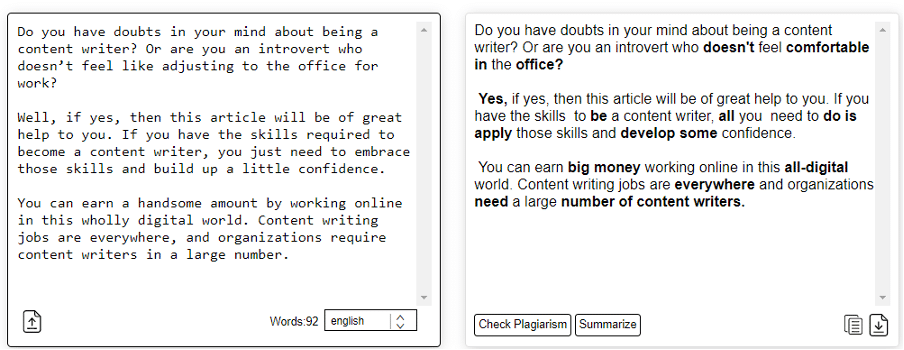In digital marketing, experts have weighed repeatedly on why originality is essential. Every month, about 70 million new blog posts go live on WordPress-based websites alone.
At the same time, those blogs generate 77 million comments from readers.
Two main things to take away from that is one: it helps generate traffic. Two, it pushes the audience towards communicating with the blog poster.
For a content type that produces around 67% sales opportunities, you could tell why originality is the number one priority for many.
However, writing plagiarism-free blogs is not as easy as they sound. You may not copy and paste anything intentionally.
However, unintentional plagiarism might still cause you trouble. That’s why it’s essential to understand the right way to devise a plagiarism-free blog.
5 Necessary Tips to Avoid Plagiarism in Your Blog
Avoiding plagiarism is a sum of various writing techniques. Every writer wants to write something that no one has before.
While it may not be impossible, it’s certainly not as easy when you’re supposed to do it day in and day out.
Yet, by developing a technique that pushes you towards originality, you can regularly write plagiarism-free content. So, to help you out with that, here are five essential tips to avoid plagiarism in a blog.
1. Pick Unique Topics
A unique topic goes a long way in generating organic traffic. More than 70% of B2C businesses today rely on content to generate awareness around their company, product, or service.
This stat also means they strive for unique and original content every day.
However, when you scroll through Google’s first page, you will see a monotonous passage of similar topics. Now, think of how you can avoid that by simply picking a unique topic.
Remember that most of the results you see focus on keyword intentions rather than headlines.
Therefore by picking a unique topic, you will stand out in a crowded SERP.
More importantly, it would reduce your chances of plagiarism by a mile.
Because you would have to research, devise a unique approach and write original content for it.
2. Understand the Pulp of the Subject
Once you pick a unique topic, you will need to make the content memorable as well.
This practice will undoubtedly help you clear off any sort of plagiarism. However, it would require you to conduct extensive research on the subject.
The middle part, or the section where you deliver on the promise of a blog’s headline, is the pulp or bulk of the conversation.
This part needs to be meaty, and it needs to feature valuable information. This informative value comes from thorough research and understanding of the topic itself.
Therefore, start by focusing on learning what you’re writing. Many professional writers spend more time researching their work than they do on the actual writing.
So, you help your case by focusing on studying the subject beforehand.
3. Proofread Thoroughly
After you’ve finished writing, going through your work will help you yield fantastic results. Doing this will ensure you avoid any plagiarism troubles and eliminate any grammatical errors.
You can use programs or simply stroll from the first word to the last. If you’re unsure of any unwanted plagiarism, then use a plagiarism detector to see if anything you wrote duplicates an existing article.

When we check the plagiarism of above paragraph, it tells us that it is 100% plagiarized and moreover it provides us the source of it too.
These plag checkers use a vast database, including articles from across the web. Therefore, proofreading and checking your article for plagiarism will surely help you steer off it entirely.
4. Use Unique Words
Blog writing is all about keeping your language simple for the typical reader. You don’t want to use too many complicated words or overfill them with jargon and industry-specific terms. The idea is to keep it crisp and readable.
However, the same simplicity can sometimes cause unwanted plagiarism. While you should never try to use overcomplicated words, using unique but less-used words can help you avoid that.
Moreover, checking plagiarism in a tool will help you understand which words you need to change.
5. Paraphrase or Spin Content
If you tend to write many of the same topics on your blog, you risk rewriting your own work. This duplicity is not only harmful, but it also affects your credibility.
That’s when you need to try spinning content from your domain.
You can use a paraphrasing tool to understand which content elements need changing.
Once the said tool spins your content, you can add unique words or check for plagiarism once more. Rinse and repeat until your content is good to go.
As you can see, the bold words are being paraphrased

What Causes Plagiarism?
A straightforward explanation for plagiarism is copying someone else’s work. This explanation includes the ideas that they used in the exact same wording. In any industry around the globe, people frown upon copying someone’s intellectual property.
Not only because it’s unethical, but you might ruin your reputation by doing so. Granted that some things inspire others, but that doesn’t mean you shouldn’t be more careful. So, what are some of the common causes of plagiarism?
· Blatant Duplicity
Perhaps the most unethical thing a writer can do for any SEO blog is to copy someone else’s content. It would never pass the indexing phase from search engine crawlers, and it would tarnish their reputation.
This type of plagiarism is copying and pasting someone else’s content. It means that it happens without paraphrasing or using your own words to retell a story—one of the reasons many experts suggest that writers should research more before writing.
· Unoriginal Ideas
If you’re looking for keywords to write content about, then you’re bound to run into washed-down topics. These topics will feature all the phrases, terms, and expressions that a writer can use commonly.
This factor is precisely what produces unwanted or unintentional plagiarism. Even if the writer is unaware, they will end up writing something that someone else has already written. To avoid this, you need to develop unique topics, even if they cover the same subjects.
· Lack of Citation
Imagine using a writer’s research and work without citing them as a source. Today, many writers suffer from unwanted plagiarism because they fail to cite the source behind their ideas, statistics, or facts.
If your sentences begin with “according to…,” then you surely need to mention the source behind it. If you said experts, then about which experts were you talking?
If you’re presenting a percentage, a fact, or statistic, where did it come from? Citing these sources will help both you and the source that you mention.
· Poor Quotations
As mentioned above, any sentence or paragraph starting with the mention of a third party requires you to quote them.
Even if you’re using someone’s quote from years ago, you need to provide the proper date, platform, and the person who said it.
For instance, if you were to talk about the “content is king” expression, then you would have to mention Bill Gates saying it in a 1996 Microsoft essay.
Notice how the sentence tells you everything you need to know—and this mentioning is precisely what you need to do.
· Lack of Topic Understanding
One of the primary reasons for plagiarism is a lack of subject knowledge. If a writer tries to write something they have little understanding of, they commit to unwilling plagiarism.
That’s why, once you write something, make sure you check plagiarism to avoid overlapping with another writer’s existing content. If irregularity does occur, then use a paraphrasing tool.
4 Key Reasons to Avoid Plagiarism
Plagiarism can affect a writer’s reputation, but it can entirely ruin a website or blog.
So, it’s not only essential to avoid it because of unethical properties, but also for the following:
· High Ranks
Both the reader and Google appreciate an excellent blog with original ideas. Whenever search engine crawlers are on the hunt to index new blogs, they look for new ideas and informative value.
Writing a blog without plagiarism can help you rank higher because of that.
· Better Retention
Audience retention depends on the originality and integrity of the blog’s content.
Plagiarized content is not only bad for the blog, but it would also make it dull in an endless sea of similar topics. Therefore, avoiding plagiarism is vital in standing out.
· Content Integrity
Integrity is perhaps one of the critical reasons that avoiding plagiarism should be on your priority list.
You need to impress your target audience and Google if you wish for higher ranks and organic traffic.
For that, you need content integrity, and it demands that you create original/unique content.
· Reputation & Credibility
Lastly, it would be best to build a reputation for your blog, whether for business or pleasure.
To attract more target audience towards it, you need to avoid writing duplicate content—by ensuring that you evade plagiarism.
Conclusion
Eluding plagiarism has many benefits for any blog. This 5-tip approach will help you devise original content with a solid structure and integrity. You need to do your research and pick your topics carefully.
